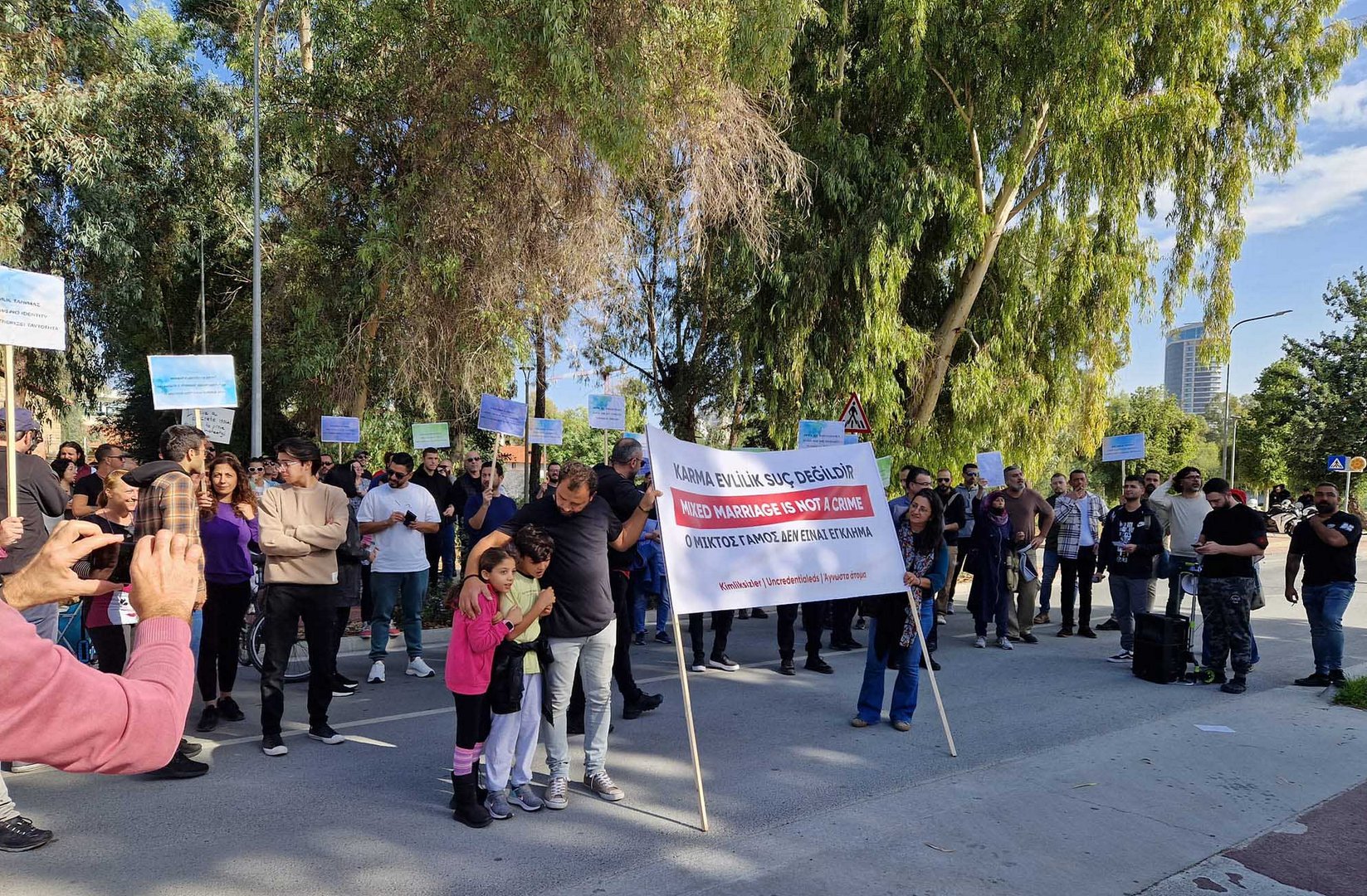Republic is dragging its feet over conferring IDs/passports to their children
Traction is being gained by a group of Turkish Cypriots in mixed marriages, who have filed a petition with the EU over delays and in some cases denial of processing citizenship applications for their children.
After a Nicosia administrative court ruling a year ago, a group called the Uncredentialeds has been working to make progress, as children born in a mixed marriage with a Turkish citizen are unable to receive their Cypriot IDs and passports, despite one of their parents holding a Republic of Cyprus ID. The group estimated as many as 30,000 people are affected.
Most recently, the group filed a petition with hundreds of signatures to the EU parliament’s committee on petitions to discuss the matter.
According to the announcement from the group, 675 signatures were collected for the petition to the EU committee, in hopes that it will be debated as thousands of Turkish Cypriots are affected by the issue.
The petitions committee mission says that people filing to it will allow parliament to conduct an ongoing reality check on the way EU legislation is implemented.
Speaking to the Sunday Mail, an Uncredentialeds spokesperson added that they would like to meet with the new Interior Minister Constantinos Ioannou to discuss their demands and get their voices heard.
“There are many lawsuits filed by various people. The matter was brought to the courts in different cases. Many of our members filed personal and collective lawsuits, but to no avail,” the group said.
The reason was that the courts in Cyprus move very slowly and their cases are not being heard.
The group said that the petitions committee of the EU parliament acknowledged receipt of their appeal, and will inform them in writing once a decision is made on the matter.
The matter is an issue of human rights, which the group holds are being violated based on EU law.
Commenting to the Sunday Mail, the EU Commission said: “The conditions and procedures for obtaining citizenship of the member states are regulated by the national law of the individual member states, subject to due respect for union law. It is thus for member states to decide under what conditions their nationality can be acquired based on descent, in line with EU law. We will not speculate on any potential court cases.”
But although up to the member states to set the national laws, the EU convention on nationality clearly states the rules on nationality of each state shall be based on the following principles: everyone has the right to a nationality and statelessness shall be avoided.
“Nationality shall not contain distinctions or include any practice which amount to discrimination on the grounds of sex, religion, race, colour or national or ethnic origin,” the convention states.
Doggul Akgul, whose mother is Turkish Cypriot and father is Turkish, said that people in his situation are allowed to obtain Republic of Cyprus birth certificates, if their parent goes to the court and makes a sworn declaration.
However, he added that the process stops there, as they are then not allowed to take Cypriot IDs or passports.
“They are keeping us as [bargaining] chips for if there is ever a Cyprus solution,” he said. Akgul said that he was told this by a Greek Cypriot lawyer looking into his case, who had said that essentially Turkish Cypriots in his situation are being kept for bartering purposes by the Greek Cypriot side, just as the Turkish Cypriot side is keeping Varosha as one of their bargaining tokens.
Akgul added that the issue of not being able to take a Cypriot ID or passport causes problems, as they cannot travel freely within the EU.
The situation is also random. He said that a relative of his who lives abroad, also in a similar situation, was able to get Cypriot citizenship and an ID, while he, who has lived and grown up in Cyprus, has been unable to do so.
He added that when the checkpoints first opened, the cabinet used to meet and decide on who would receive citizenship, but for some years now this practice has stopped, leaving thousands waiting.
The government has been dragging their feet, with sources confirming to the Sunday Mail that granting citizenship to people in mixed marriages is problematic as they cannot confirm the documentation of the couple, due to the Cyprus problem.
Turkish nationals that moved to the north after the 1974 invasion are seen as illegal settlers by the government.
Law professor Achilles Emilianides recently told Euronews that the government does not take decisions easily, as the areas where the marriage is celebrated are not under its control. “It often does not have sufficient data in order to confirm whether this is a case of illegal settlement or not.”
Meanwhile the Uncredentialeds have said that they will continue to demonstrate and protest until their rights are recognised.







Click here to change your cookie preferences